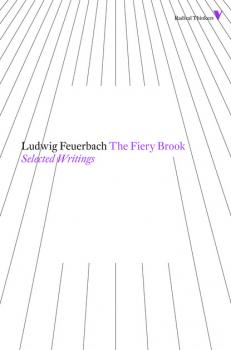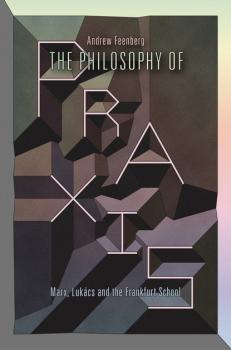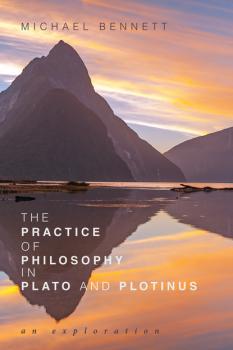ТОП просматриваемых книг сайта:
Афоризмы и цитаты
Различные книги в жанре Афоризмы и цитаты, доступные для чтения и скачиванияАннотация
Analyzing the different frames through which we experience war, Butler calls for a reorientation of the Left In this urgent response to violence, racism and increasingly aggressive methods of coercion, Judith Butler explores the media’s portrayal of armed conflict, a process integral to how the West prosecutes its wars. In doing so, she calls for a reconceptualization of the left, one united in opposition and resistance to the illegitimate and arbitrary effects of interventionist military action.
Аннотация
A major systematic study of the connection between Marx and Lacan’s work This book discusses the importance of Marx’s critique of political economy in Lacan’s attempt to rethink the political and philosophical legacy of Freudian psychoanalysis. By situating Marx in the broader context of Lacan’s teaching, it highlights the ongoing importance of the capacity of psychoanalysis to reaffirm a dialectical and materialist thinking in philosophy and beyond. Lacan presents an unorthodox image of Marx, linking his critique of capitalism with the fundamental concepts of psychoanalysis, the Freudian “labour theory of the unconscious” and emancipatory politics, showing that psychoanalysis, structuralism and the critique of political economy participate in the same movement of thought, which revolutionized the human sciences and whose relevance remains intact even today.
Аннотация
Central essays by Feuerbach, advancing his humanist and atheist thought. Ludwig Feuerbach’s departure from the traditional philosophy of Hegel opened a door for generations of radical philosophical thinkers, foremost among them the young Karl Marx. Indeed, much of early Marx is unintelligible without reference to certain fundamental Feuerbachian texts. The selections in this volume, few of them available in translation elsewhere, reveal Feuerbach’s fundamental criticisms of the ‘old philosophy’ of Hegel and advance his own humanistic thought, grounded in life and sensuality. The reader can readily grasp the liberating influence of this unjustly neglected philosopher.
Аннотация
A new program for the Left after the death of neoliberalism. ‘We know that communism is the right hypothesis. All those who abandon this hypothesis immediately resign themselves to the market economy, to parliamentary democracy—the form of state suited to capitalism—and to the inevitable and “natural” character of the most monstrous inequalities.’—Alain Badiou Alain Badiou’s ‘communist hypothesis’, first stated in 2008, cut through the cant and compromises of the past twenty years to reconceptualize the Left. The hypothesis is a fresh demand for universal emancipation and a galvanizing call to arms. Anyone concerned with the future of the planet needs to reckon with the ideas outlined within this book.
Аннотация
Radical new critical theory for the twenty-first century. In Molecular Red, McKenzie Wark creates philosophical tools for the Anthropocene, our new planetary epoch, in which human and natural forces are so entwined that the future of one determines that of the other. Wark explores the implications of Anthropocene through the story of two empires, the Soviet and then the American. The fall of the former prefigures that of the latter. From the ruins of these mighty histories, Wark salvages ideas to help us picture what kind of worlds collective labor might yet build. From the Russian revolution, Wark unearths the work of Alexander Bogdanov—Lenin’s rival—as well as the great Proletkult writer and engineer Andrey Platonov. The Soviet experiment emerges from the past as an allegory for the new organizational challenges of our time. From deep within the Californian military-entertainment complex, Wark retrieves Donna Haraway’s cyborg critique and science fiction writer Kim Stanley Robinson’s Martian utopia as powerful resources for rethinking and remaking the world that climate change has wrought. Molecular Red proposes an alternative realism, where hope is found in what remains and endures.
Аннотация
One of the most influential voices in contemporary cultural theory on how to make it new. As ideas move from one context to another, something new is created. This continuous shifting of the line that separates the valuable from the worthless, culture from profanity, is at the centre of Boris Groys's investigation.
Аннотация
The origins of «Western Marxism». The early Marx called for the «realization of philosophy» through revolution. Revolution thus became a critical concept for Marxism, a view elaborated in the later praxis perspectives of Lukács and the Frankfurt School. These thinkers argue that fundamental philosophical problems are, in reality, social problems abstractly conceived. Originally published as Lukács, Marx and the Sources of Critical Theory, The Philosophy of Praxis traces the evolution of this argument in the writings of Marx, Lukács, Adorno and Marcuse. This reinterpretation of the philosophy of praxis shows its continuing relevance to contemporary discussions in Marxist political theory, continental philosophy and science and technology studies.
Аннотация
Part of Verso's classic Mapping series that collects the most important writings on key topics in a changing world, produced in association with New Left Review. For a long time, the term ‘ideology’ was in disrepute, having become associated with such unfashionable notions as fundamental truth and the eternal verities. The tide has turned, and recent years have seen a revival of interest in the questions that ideology poses to social and cultural theory, and to political practice. Mapping Ideology is a comprehensive reader covering the most important contemporary writing on the subject. Including Slavoj Zizek’s study of the development of the concept from Marx to the present, assessments of the contributions of Lukacs and the Frankfurt School by Terry Eagleton, Peter Dews and Seyla Benhabib, and essays by Adorno, Lacan and Althusser, Mapping Ideology is an invaluable guide to the most dynamic field in cultural theory. With contributions by Nicholas Abercrombie, Theodor Adorno, Louis Althusser, Michele Barrett, Seyla Benhabib, Pierre Bourdieu, Peter Dews, Terry Eagleton, Stephen Hill, Fredric Jameson, Jacques Lacan, Michel Pecheux, Richard Rorty, Goran Therborn, and Bryan Turner.
Аннотация
Western civilization was built on the concept of God. Today modern science, based on the critical method and so-called objective facts, denies even the existence of our soul. There is only matter: atoms, molecules, and DNA sequences. There is no freedom; there are no well-grounded beliefs. The decline of Western civilization is not the simple consequence of decadence, hedonism, and malevolence. Modern critical science has liberated us from the old dogmas but failed to establish our freedoms, values, and beliefs.
However, human knowledge is not objective but personal. We are the children of evolution. Everybody sees the world from his own personal point of view anchored into his/her body. We use our billions-of-years-old evolutionary skills and thousands-of-years-old cultural heritage to recognize and acknowledge the personal facts of our reality, freedom, and most important natural beliefs: respect and speak the truth. In reality, even science itself is based on our personal knowledge. Only our false conceptual dichotomies paralyze our thinking.
God or matter?–there is a third choice: the emergence of life and human persons. This is the only way to defend our freedoms and the Christian moral dynamism of free Western societies.
However, human knowledge is not objective but personal. We are the children of evolution. Everybody sees the world from his own personal point of view anchored into his/her body. We use our billions-of-years-old evolutionary skills and thousands-of-years-old cultural heritage to recognize and acknowledge the personal facts of our reality, freedom, and most important natural beliefs: respect and speak the truth. In reality, even science itself is based on our personal knowledge. Only our false conceptual dichotomies paralyze our thinking.
God or matter?–there is a third choice: the emergence of life and human persons. This is the only way to defend our freedoms and the Christian moral dynamism of free Western societies.
Аннотация
Plato said over 2,500 years ago that «an unexamined life for a man is not worth living.» To examine one's life, on a regular basis, cannot but lead to a consideration of virtue, which in turn leads to a search for the Good, which both Plato and Plotinus say all men naturally seek. What we call a good informs the value system we live by, but a good can only reflect the Good, if it is good for our soul and the soul of our neighbor, any more than we can claim virtue with a mote in our eye. Are the wrongs perceived in society also in ourselves, for where else could they have come from? So we need a different kind of inquiry and a different order of reflection; an inquiry that reveals errors in how we see things and a reflection that seeks a spiritual dimension to how we see things. It does not matter if it is called contemplation or meditation, for the principle of prayer has been with us ever since man first intimated the presence of the Divine.










